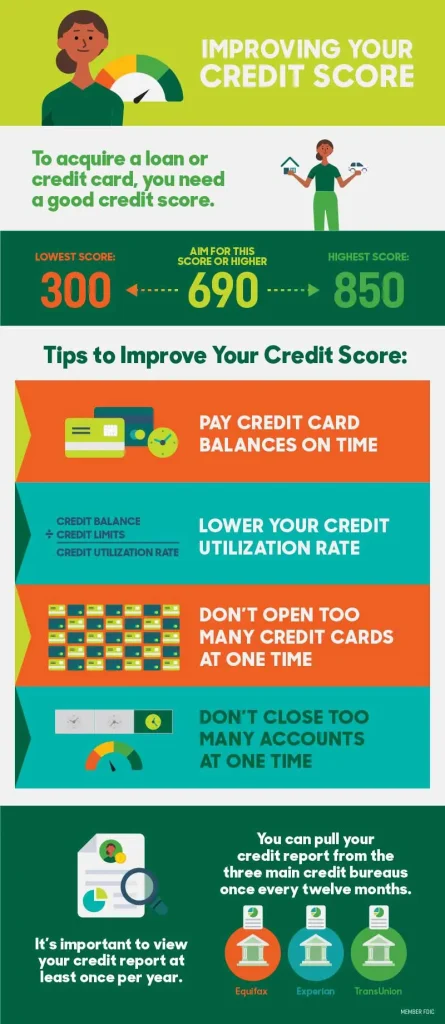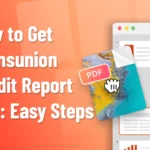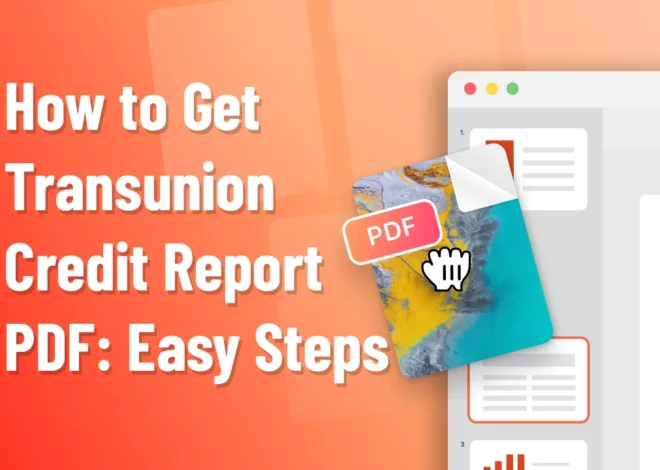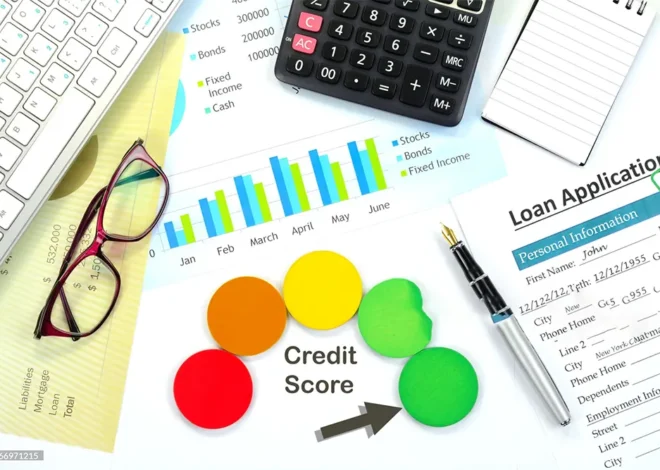
How to Repair Credit Score Quickly
There is little doubt that fixing your credit rating promptly is not only possible, but it may also be crucial. If you intend to qualify for some loans or mortgages, for instance, then a good credit score would put the odds in your favour and get you a better rate on top of that. This makes short-term effectiveness imperative. While it usually takes time, the following are effective strategies that will immediately yield positive results for your credit score. This guide takes you through how to repair credit score quickly, offering remedies for common situations and actions that are strategically beneficial. It also provides a habit-changing approach.
Why a Good Credit Score Matters
Other than your income, your credit score is one of the most crucial indicators of your financial health. Whether or not you get approved for loans, credit cards with low interest rates, or even a job can depend on this single number–which assesses not just your current level of indebtedness and repayment history but also (if available) previous data about what debts you have had before now; it weighs their terms as well This question of “how good you are” is hasn’t just about getting things now but getting the best out of everything in your tenures during this life.
If you’re currently paying more interest on your loans than average, not either getting the job that your education and experience would suggest should be available or being turned down when seeking new credit, this is all down to Your score is too low. That is to say, knowing how to repair credit score quickly can return control of one’s financial destinies to the individual citizens, lifting off restraints in work life and providing them with an ever-brighter future.
Factors That Impact Your Credit Score
The first step in learning how to repair your credit quickly is to have a basic understanding of the factors that affect your score.
- Payment History (35%): A record of making on-time payments is the most significant factor affecting your credit score.
- Credit Utilization Ratio (30%): This is the amount of credit that you are using relative to the total amount available.
- Length of Credit History (15%): The longer your credit histories may be generally the better they tend to perform; they give a broader window into your financial behaviour.
- New Credit Inquiries (10%): Too much new credit in a short period can hurt your score.
- Credit Mix (10%): The wide variety of credit accounts that you maintain such as loans, credit cards, 20-year fixed mortgages, etc.–can produce a beneficial effect on your score.
It is by understanding these factors that one must begin to learn how to repair one’s credit score quickly.
Need more resources? You can also check out Why Does Higher Credit Utilization Decrease Your Credit Score? for helpful tips and tricks.
How to Repair Credit Score Quickly: Step-by-Step Guide
Repairing your credit score quickly involves taking specific, targeted actions. Start by reviewing your credit report for errors, paying down high balances, negotiating with creditors, and using tools like secured credit cards. Each of these 7 points focuses on improving your creditworthiness and rebuilding your financial health in a short period.
1. Check Your Credit Report for Errors
To repair your credit score quickly, the first thing you need to do is get a copy of your credit report from all three major bureaus: Equifax, Experian and TransUnion. By law, every consumer is entitled to one free report per year from each bureau, and you can order these from the official AnnualCreditReport.com website.
- Inaccuracies may include erroneous account balances, accounts created by identities that are not your own, and duplicate entries.
- Take issue with any inaccuracies directly with the credit bureau. They must then investigate and respond in 30 days, and if the matter turns out to be in your favour there can be a precipitous jump in your score.
2. Pay Down High Balances and Reduce Debt
Another fast thing to increase one’s credit score is by reducing the credit utilization ratio. But this piece of advice is not as easy to put into practice for everybody because the ideal level will vary from person to person based upon one person’s financial situation compared with another’s own. It is worth noting however that a level closer to or equal to 30% of available credit limits means you have an excellent chance at getting your desired number allocated.
Here’s how:
- Pay off as much of your credit card debt as possible.
- Make multiple payments throughout the month to keep your balance low.
- Request a credit limit increase if your financial situation allows for it. This can help lower your utilization ratio without paying down the balance.
3. Negotiate with Creditors
Late payments, accounts in collections, and other negative information on your credit report can be good bargaining chips when speaking with creditors. Many lenders are willing to help you settle the debt or even take a negative entry off in return for payment where possible.
- Contact your creditors to negotiate a settlement amount or request a “pay-for-delete” agreement.
- If the debt is valid but you’re struggling to pay it, ask if you can set up a payment plan to pay off the balance over time.
Negotiating with creditors and settling debts can lead to the removal of negative marks, which will improve your credit score quickly.
4. Become an Authorized User
Alternatively, you can seek out a close friend or family member with fine credit. If they permit it, get your name as an Authorised User on their credit card. This technique lets you ride on their coattails and also perhaps even reap some new score points from all that skimming they’ve been doing unconsciously of late at mutual ATMs!
- Make sure the primary cardholder has a good credit score and uses the card responsibly.
- Once you become an authorized user, monitor your credit report to ensure the account is reflected accurately.
5. Use a Secured Credit Card
A secured credit card is an excellent tool for rebuilding credit quickly. These cards require a cash deposit, which serves as collateral and determines your credit limit.
- Use the secured card for small purchases and pay off the balance in full each month.
- Over time, responsible use of a secured card will help improve your credit score and can eventually qualify you for an unsecured card.
6. Address Delinquent Accounts
Delinquent accounts, such as unpaid credit card bills or loans, can significantly damage your credit score. To repair your credit score quickly, prioritize paying off these accounts.
- Contact the creditor to discuss payment options or settlements.
- Once the account is paid off or settled, request that the creditor reports it as “Paid as Agreed” to the credit bureaus.
7. Avoid New Credit Applications
Each time new credit was applied for, a hard inquiry was recorded on your credit report, which would temporarily (but usually for only a few months) lower your score. If you intend to repair your credit score quickly, avoid applying for new credit until your score has improved.
Need more resources? You can also check out How to Get a Repossession Off Your Credit: Steps and Strategies for helpful tips and tricks.
How Long Does It Take to See Results?
How quickly your credit score improves will depend on the severity of the problems and the strategies you use. For example, correcting an error on your credit report usually makes for a change within 30 days, while a reduction in credit utilization ratio can show up as soon as the credit bureaus receive new information.

Maintaining a Good Credit Score
To stay on top of the credit score you’ve made great efforts to improve swiftly and maintain it. As you cultivate these healthy financial habits, you will build a positive credit history for the years to come and keep your score high.
- Paying Your Bills On Time: Late payments can stay on your credit report for up to seven years. Remember to set up reminders, or use automatic payments-just don’t let a due date pass by unnoticed!
- Keep A Low Credit Utilization Rate: Keep managing and monitoring your utilisation rate by paying down balances and resisting making large charges on your credit cards.
- Regularly Check Your Credit Report: Be sure to check on the accuracy of all information in your credit report regularly and see if there is any fraudulent activity there.
Need more resources? You can also check out Fast Credit Repair in 30 Days: Proven Strategies for Quick Results for helpful tips and tricks.
Final Thoughts
To quickly repair your credit score, you need a variety of tactics as well as financial discipline. Struggling to improve your score with a mixture of attitude adjustments right on. As you dispute the following correct errors on your credit report, clear those high balances and negotiate with creditors It is quite possible to raise your score well not quickly in so short a period. You have to hold on patient and keep at it: This is the only way you can learn how quickly to repair your credit score on your initiative while setting yourself up for a secure financial future.











